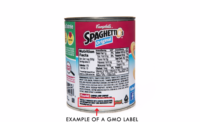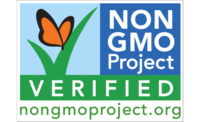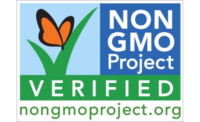One of the strangest, most-convoluted policy fights in the history of modern food just cleared a major hurdle in July with President Obama’s expected signature of the GMO Labeling agreement between Senators Pat Roberts (R-KS) and Debbie Stabenow (D-MI). Roberts and Stabenow, chair and ranking member, respectively, of the Senate Agriculture Committee, forged the ultimately successful agreement that ensures consumers have access to desired information about their food while avoiding confusing and complex state labeling laws.
With 20-20 hindsight, one can only second-guess the initial strategy that propelled the legal and legislative process that led to passing a rule to require labeling of foods containing biotech ingredients. Despite the contentions of the small but vocal group of activists, labeling changes of any kind are extremely complicated, fraught with legal ramifications and costly. At the end of the day, garnering a federal preemption for the four state GMO labeling bills already in place and the potential 28 additional labeling requirements was a critically important achievement.
I want to share my five takeaways:
- Assume nothing. Don’t assume consumers/legislators understand food supply issues. Don’t assume that consumers/legislators understand food science and technology. Don’t assume that science, facts and common sense trump all.
- Importance of transparency. The food industry sometimes gets in its own way by not educating consumers about where their food comes from; how food gets to stores and restaurants; and the safety and affordability of their food. We need to be more transparent.
- Importance of unity. When the food industry unites, it can accomplish a lot of good things. The Safe and Affordable Food Coalition, of which the American Bakers Association (ABA) was an active member, was the largest farm-to-fork food coalition ever assembled on a policy issue. With proper leadership and common purpose, the food industry can accomplish a lot. Despite activist attacks against “big food,” we are seldom unified.
- Importance of engagement. Senator Roberts put it best when he remarked that he had never seen the food industry engage at the level it did in pushing the GMO Labeling bill. For ABA’s part, ABA members generated over 5,000 emails, calls and meetings with senators and representatives over the past year. The overwhelmingly strong bipartisan support (63 votes in the Senate and 75 percent of the House) is testament to that engagement
- Work is not done. As satisfactory as it feels to have the GMO Labeling bill passed in Congress, much work remains to be done. The action will now shift to USDA, which is tasked with writing the key details for the new federal GMO Labeling standard. Definitions, labeling options, deadlines, etc. all are yet to be determined. The activists have already shifted focus, so too must the food industry.
One final takeaway: ABA’s part in the successful effort to pass federal GMO Labeling and preempt a patchwork of state laws was possible due to the strong, flexible—but principled—leadership of the ABA Executive Committee, Board of Directors and Food Technical Regulatory Affairs (FTRAC). If not for their collective leadership and foresight, the ABA professional team would not have been able to engage in such a strong and effective manner. Working side-by-side with ABA leaders, the broad membership of bakers and suppliers, the ABA professional team was able to be a critical part of the food industry effort. For that leadership and support, we are all extremely grateful and honored.








